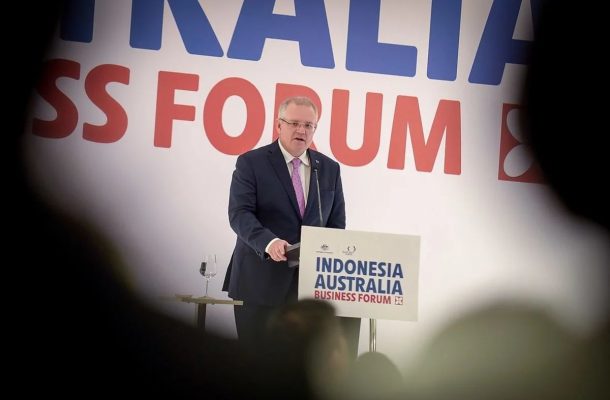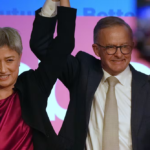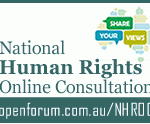Scott Morrison became Prime Minister last August, after unexpectedly winning a leadership spill in which he outmanoeuvred Minister for Home Affairs Peter Dutton and replaced Malcolm Turnbull. Then, 100 days ago this week, he surprised Australia by winning an election against the odds to remain Prime Minister.
Morrison conducted the election campaign almost single-handedly, undeterred by naysayers who questioned the Coalition’s lack of a policy agenda, or who remained unconvinced that the divisions within the party room – which had toppled Turnbull and Tony Abbott before him – had disappeared.
Morrison described his victory as a “miracle”, but political scientist Professor James Walter says: “It’s clear now that the Liberal Party had much better polling information than we were getting publicly, a better ground campaign, and better information than the Labor Party. Towards the end of the campaign, I think they were confident that they would get enough seats in the right spots.”
A winning strategy
The Prime Minister’s strategy was to paint Opposition leader Bill Shorten as untrustworthy, while presenting himself as an ordinary suburban bloke – a daggy dad – who understood the aspirations and struggles of the “quiet Australians”. This is still the persona he wishes to project. “I think it’s very misleading,” Professor Walter says.
Morrison won not by “contesting the policy space”, but by presenting his government as sound economic managers. “They put all of Labor’s policy initiatives into question and said they would lead to terrible outcomes.” Clive Palmer’s massive advertising campaign, with its relentless attacks on Bill Shorten, also helped turn regional voters away from the Labor alternative.

“All the metropolitan areas voted for Labor,” Professor Walter says. “If the election had been decided by the big population concentrations, we would have a Labor government.”
Morrison now presides over a divided – and relieved – party, and also a divided country. At the same time, Labor “has been in a mess since the election. They’re still trying to understand what to do next, having tried a big, ambitious policy agenda. They’ve given Morrison a fair degree of freedom.”
What has the Prime Minister done with this freedom? His promise of sound economic management is likely to be tested as global economic threats continue to mount – the US-China trade war, the Hong Kong crisis, Brexit, and an economic downturn in Germany among them.
“All of those things are looming, and it’s an open question whether he can manage them,” Professor Walter says. “And there are other things that they’re not handling well – that they predictably couldn’t do well. Climate change is still a real problem for them. He hasn’t been able to revive any form of strategy that mitigates energy costs and tackles climate change. Domestically, despite the election, it’s still clear that people want something done on climate change.”
Standing undermined
Professor Walter cites the Prime Minister’s clash with Pacific leaders at the recent Pacific Island Forum as a sign that the government is also out of step with regional concerns. Morrison’s performance undermined Australia’s standing with vulnerable neighbours, who are also being wooed by China.
Climate change is the most visible manifestation of a deeper problem – the divisions between the Coalition’s so-called “base”, or more committed right-wingers, and moderate Liberal voters in the capital cities.
Professor Walter says Tony Abbott’s defeat in the May election and the Prime Minister’s natural conservatism have helped his problem with “the base”. Yet Morrison is canny enough to recognise that the Liberal Party needs to keep its moderate voters on side.
Former Liberal PM John Howard was the master at appealing to conservatives while granting concessions to moderates. Professor Walter says it’s not clear whether Morrison will be as capable a politician, although he has proved to be more politically able than Turnbull, and has so far outwitted Labor opponents.
“Climate change is still a real problem for [the government]. He hasn’t been able to revive any form of strategy that mitigates energy costs and tackles climate change.”
In the meantime, pressure is building to increase the Newstart allowance, which the government is resisting, unwilling to threaten its promised surplus. “It’s becoming more and more obvious that really disadvantaged people are getting a raw deal, but the government won’t budge,” he says.
Indigenous affairs is also proving divisive. The government’s Minister for Indigenous Affairs, Ken Wyatt, is promising constitutional recognition for Indigenous people while also ruling out a First Nations voice in the Parliament, a crucial reform recommended in the Uluru Statement From the Heart.
“The Prime Minister’s rhetoric about the quiet Australians is implicitly a divisive tactic,” Professor Walter says. “It’s an ‘us and them’ rhetoric. These are the people whom he endorses, and then there is this other lot.” Morrison’s most recent assault on the activist group GetUp is a sign of his impatience with dissent.
Despite the many challenges facing the government, the Prime Minister has largely succeeded in keeping politics off the front page – so far. The relative quiet is unlikely to continue indefinitely.
This article was published by Lens.













